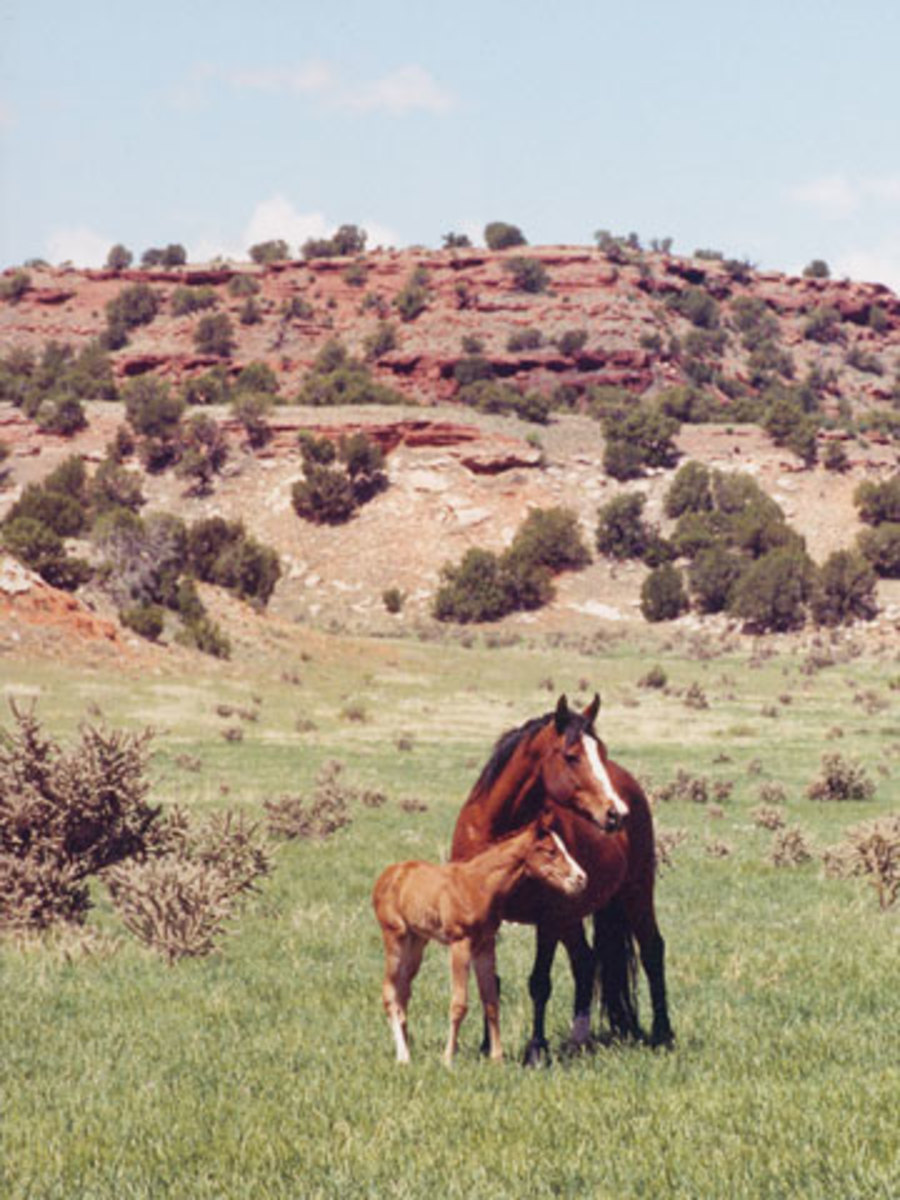
I often come up with a topic for this column based on something I’ve observed in my practice. Since I’m recently semi-retired and just doing routine, scheduled work these days, I’ve spent most of my time this spring at broodmare farms doing reproduction work on the mares. In the course of being there, I observe behavior in foals and so, at the risk of being anthropomorphic, I’ll share some of my observations on foals.
I see foals at 8-10 days of age, because that’s the time of the mare’s first heat period post-foaling. The foal is brought up to the palpation chute with the mare to keep both the mare and foal calm. At that age, foals don’t appear, to me, to have any particular personality traits. They don’t appear to see very well above eye level, and seem to mainly maintain contact with the mare by sound and smell.
The next time I see foals, they’re about four weeks old. They’re that old when it’s time to scan the mare for pregnancy if she were bred on the foal heat, or it’s time for her second heat period post-foaling. By this time, I think you start to see personality differences in foals. They’re aware, and react to the environment much more than they did at 8-10 days of age.
The worst-case scenario is to have a foal panic in the course of handling him during these procedures. The most predictable way to cause a foal to panic is to put too much pressure on him too quickly in trying to hold or confine him. Horses have evolved by having a violent flight reaction to escape predators. They’re sometimes reflexive in their instinctive reaction to threat. I believe if we can remember that in the way we handle and condition them, that is to say “train” them, we’ll be time and money ahead.
As the foals get older they start to show cognitive responses to situations and will start to “figure out” how to get from Point A to Point B without just the reflex response of escape. How much they’re handled, how they’re handled and their genetics seem to be the three most important factors in their adapting to “our” world.
Personally, I’m favorably impressed by foals that have a high threshold for panic or fear. I believe it to be a sign of good intelligence in both people and horses. It seems to me that when we consider what a good roping horse has to do, his mind might be the most important quality to consider.










